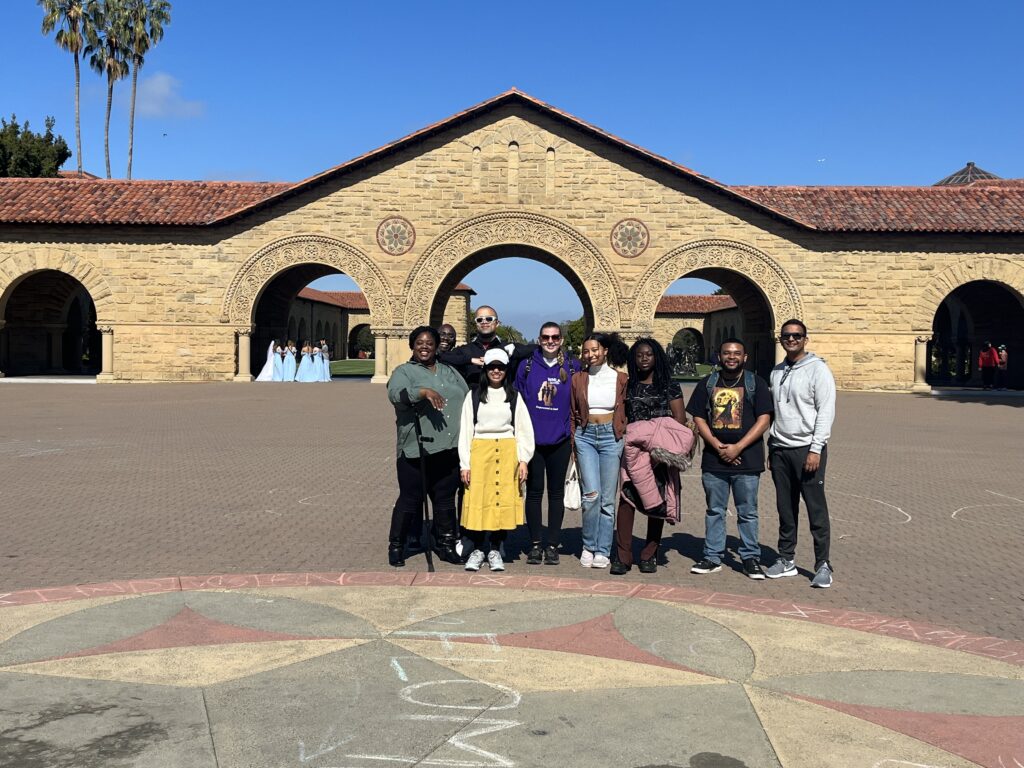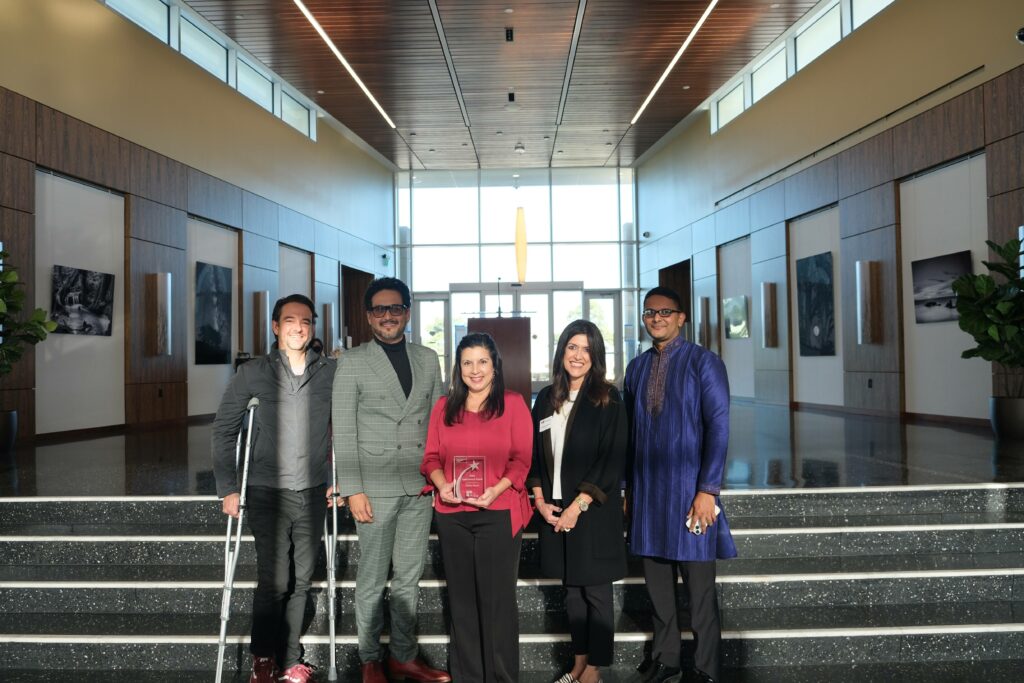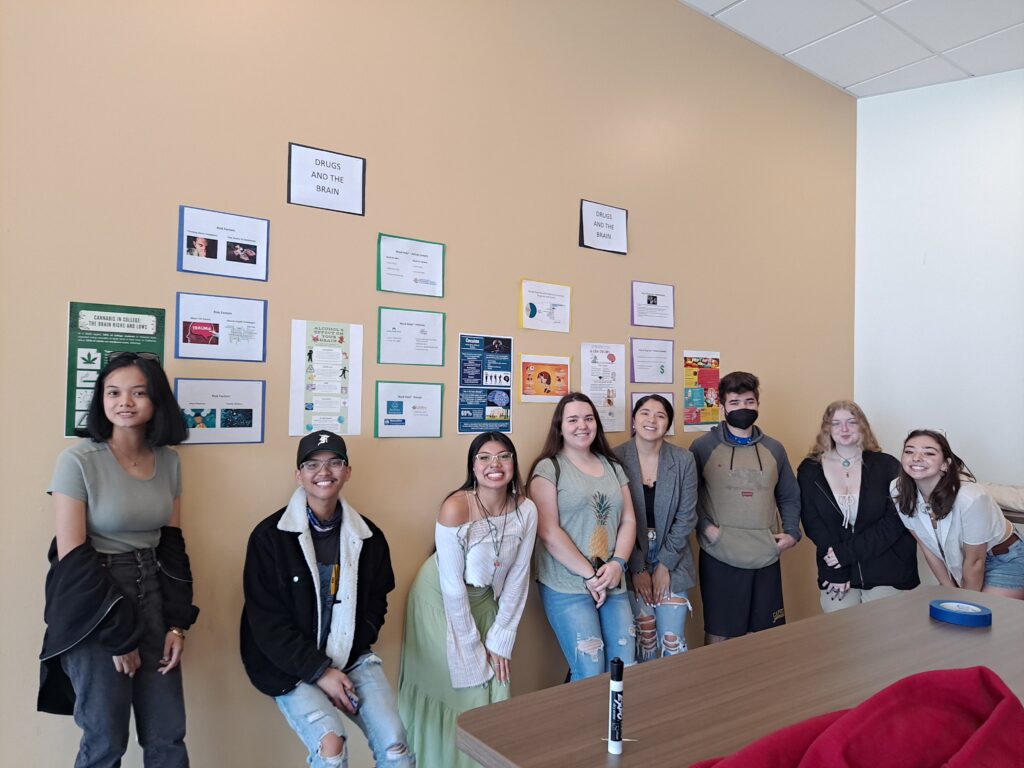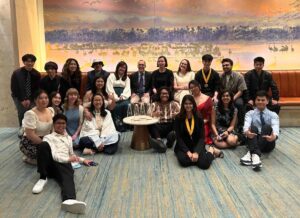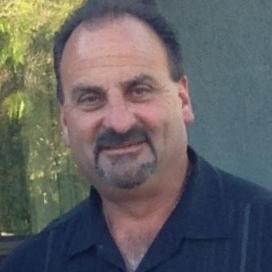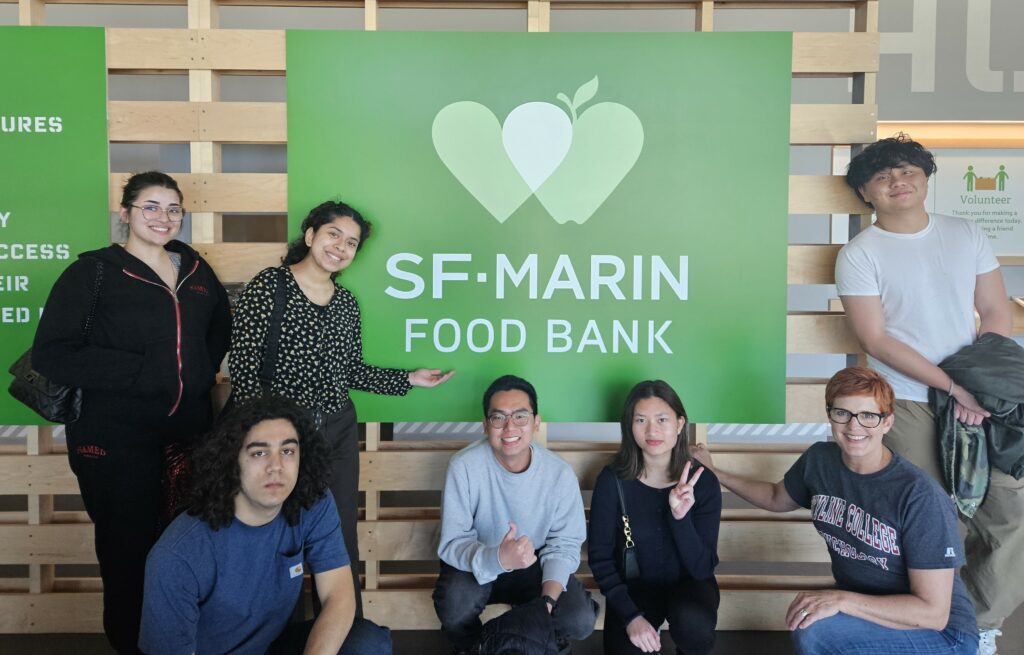On Monday, November 7, 2022, the Honors Club and the Honors Transfer Program hosted...
Month: November 2022
On November 2, 2022, Skyline College Library and Health Center collaborated to present an...
On October 15, 2022, the Umoja-ASTEP program took 14 students and staff to see...
On Monday, November 14, 2022, the International Student Program (ISP) hosted the International Education...
On October 24, 2022, the International Student Program (ISP) hosted a campus tour of...
On Tuesday, November 15, 2022, the San Mateo County Community College District (SMCCCD) Study...
Late last month, the American Physical Society’s Division of Nuclear Physics held its annual...
Students in Psychology 220 – Introduction to Psychobiology – created infographics with information about...
Two Skyline College students presented their original, scientific research this Fall. They presented at...
Skyline College Library hosted the virtual Human Library event on October 20, 2022. At Skyline...


